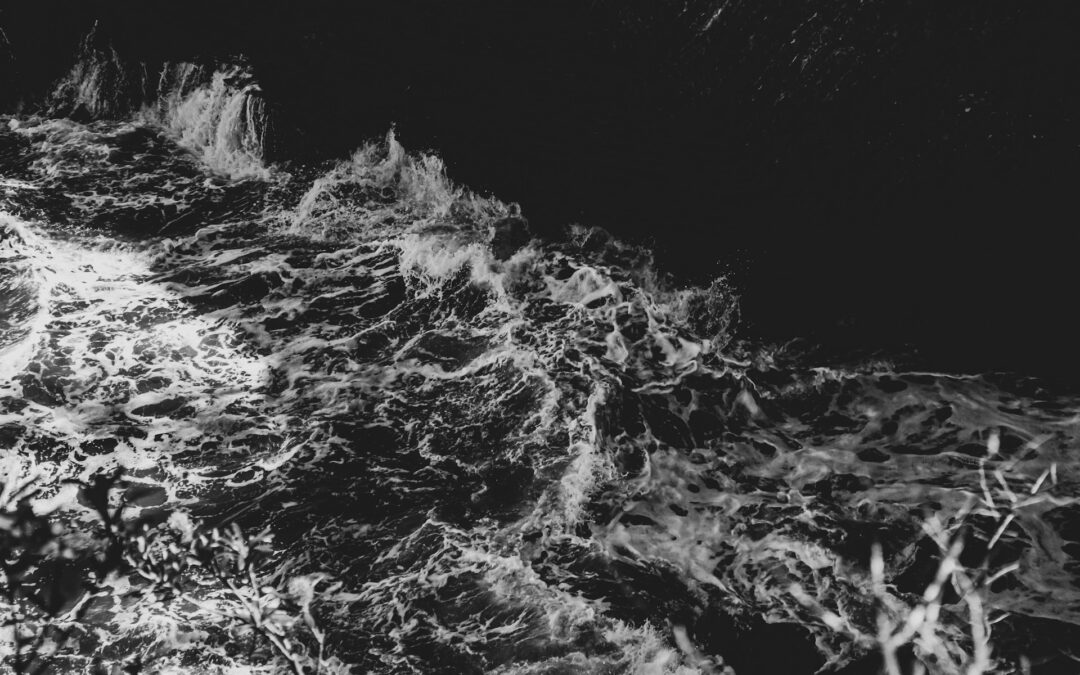The story of Noah’s Ark and the biblical flood has long captivated imaginations, raising profound questions about faith, history, and the natural world. While traditionally viewed through a religious lens, scientific discoveries like the Black Sea Flood Hypothesis offer another perspective.
Did a massive regional flood inspire the biblical tale, or is it purely symbolic?
This exploration isn’t just about finding facts — it’s about understanding how ancient people interpreted the world around them. By examining both the scientific evidence of floods and their spiritual significance, we can gain insight into the stories that shape our beliefs.
Let’s embark on this journey of curiosity, bridging science and spirituality to uncover a deeper understanding of both the past and ourselves.

🌊 The Black Sea Flood Hypothesis: A Natural Catastrophe with Lasting Echoes
The Black Sea Flood Hypothesis proposes that around 7,600 years ago, a catastrophic breach at the Bosporus Strait caused seawater from the Mediterranean to rush into the Black Sea, which was then a freshwater lake.
For the people living along its shores, the deluge would have been devastating — a sudden and irreversible transformation of their world. While not a global flood, its impact would have been overwhelming enough to inspire myths of divine punishment and survival.
Scientific Evidence Supporting the Black Sea Flood
-
Sediment Analysis: Layers of sediment indicate a sudden transition from freshwater to saltwater, consistent with the theory of a massive flood.
-
Marine Archaeology: Underwater discoveries, including ancient structures and freshwater mollusk shells, support the timeline of this event.
-
Climate Data: Rising sea levels at the end of the Ice Age increased the likelihood of such catastrophic flooding.
Though the flood itself was regional, stories of destruction and rebirth often transcend geographic boundaries.
Could this be the historical root of the biblical flood?

Noah’s Flood: Myth, Reality, or Collective Memory?
The flood narrative in the Book of Genesis describes a cataclysmic global event. Still, many scholars argue that it may reflect localized disasters like the Black Sea Flood or floods in Mesopotamia. Such stories could have been passed down through generations, evolving into symbolic narratives with spiritual lessons.
Comparing the Narratives
-
Regional vs. Global: The Black Sea Flood was regional, not global, yet for those affected, it may have felt like the end of the world.
-
Oral Tradition: Before written records, stories were passed down orally. Over time, symbolic elements like divine judgment and salvation may have been added.
-
Cultural Parallels: Similar flood myths exist in cultures worldwide, including the Epic of Gilgamesh in Mesopotamia and the Hindu story of Manu. Each reflects a shared human experience with natural disasters.
Whether the flood in Genesis is historical or allegorical, its emotional truth remains: resilience, renewal, and the enduring human spirit.
The Harmony of Science and Spirituality
While science and spirituality are often seen as opposing forces, they can also complement one another. Science seeks to explain how the world works, while spirituality explores why it matters. Ancient cultures, including the Celts, practiced their own form of observational science by tracking the stars, studying plant cycles, and understanding the elements.
Rather than disproving spirituality, scientific discoveries like the Black Sea Flood offer a deeper understanding of how stories were shaped by real-world events. Recognizing this connection allows us to appreciate both the wonder of the natural world and the human need to find meaning within it.
How to Continue Your Exploration
-
Explore Archaeological Sites: Visiting Scotland’s historic landmarks provides a physical connection to your ancestors.
-
Research Natural Phenomena: Delving into geological studies can help you understand the impact of ancient floods and climate shifts.
The Black Sea Flood Hypothesis and the biblical story of Noah’s Ark are powerful examples of how humans interpret their experiences through stories and beliefs. Whether viewed through the lens of science or spirituality, both perspectives offer valuable insights.
By embracing curiosity and exploring both your heritage and the natural world, you can find your own understanding of truth — one that honors both the facts of history and the wisdom of your ancestors.
Where will your journey take you next?
Reference List:
-
Ryan, W. B. F., & Pitman, W. C. (1998). Noah’s Flood: The New Scientific Discoveries About the Event That Changed History.
This seminal book introduces the Black Sea deluge hypothesis, proposing that a catastrophic flood around 7,600 years ago may have inspired the story of Noah’s Ark. -
Ballard, R. D., Coleman, D. F., & Rosenberg, G. D. (2000). “Further Evidence of Abrupt Holocene Drowning of the Black Sea Shelf.” Marine Geology, 170(1-2), 253-261.
This peer-reviewed article presents findings from underwater explorations in the Black Sea, providing evidence supporting the hypothesis of a sudden inundation event. -
Aksu, A. E., Hiscott, R. N., & Yasar, D. (2002). “Persistent Holocene Outflow from the Black Sea to the Eastern Mediterranean Contradicts Noah’s Flood Hypothesis.” GSA Today, 12(5), 4-10.
This study challenges the catastrophic flood theory, suggesting a more gradual connection between the Black Sea and the Mediterranean. -
Mason, B. (2002). “Questions About Noah’s Flood Theory.” Science, 296(5574), 2211-2212.
This article discusses the scientific debate surrounding the Black Sea flood hypothesis, presenting various perspectives on the evidence. -
Yanko-Hombach, V., Gilbert, A. S., & Dolukhanov, P. M. (Eds.). (2007). The Black Sea Flood Question: Changes in Coastline, Climate, and Human Settlement. Springer.
This comprehensive volume compiles research on the Black Sea flood hypothesis, examining geological, climatic, and archaeological evidence.
For online articles and news reports:
-
Radford, T. (2000). “Evidence Found of Noah’s Ark Flood Victims.” The Guardian.
This article reports on marine archaeological findings in the Black Sea that some researchers link to the biblical flood narrative. -
“Black Sea Flood Theory Put to Test.” (2009). Science.
This piece discusses ongoing research and debates concerning the Black Sea flood hypothesis.



Recent Comments